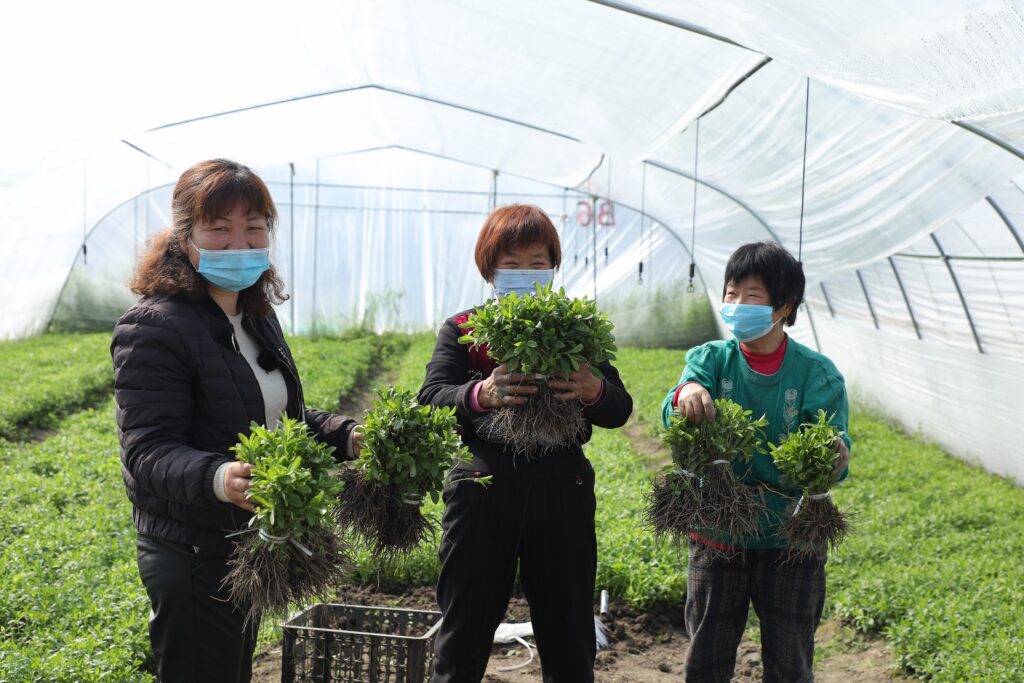Ingredients Giant Tate & Lyle Strikes Deal to Develop Next-Gen Plant-Based Sweeteners
4 Mins Read
Tate & Lyle has collaborated with BioHarvest Sciences to develop plant-based sweeteners that are better for human and planetary health.
British ingredients giant Tate & Lyle – which manufactures the sugar substitute Splenda – has partnered with Canadian botanical synthesis specialist BioHarvest Sciences to develop planet-friendly, better-for-you sweeteners.
Through the collaboration, the two entities will create next-generation plant-based molecules that can help reduce the sugar content in food and beverage products, while addressing consumer demand for affordable, sustainable and nutritious sugar alternatives.
It is the latest effort in Tate & Lyle’s sugar reduction mission. A legacy sugar producer, the 165-year-old company sold its sugar business to American Sugar Refining in 2010, pivoting to produce health-forward ingredients for food and beverage manufacturers.
The company says it will leverage its years of research and applications, nutrition and regulatory expertise, to fuel the partnership, which forms part of its open innovation programme.
“Our open innovation programme is all about creating cutting-edge solutions for the food and beverage industry,” said Tate & Lyle CEO Nick Hampton. “By partnering with entrepreneurial innovators like BioHarvest, we aim to disrupt the future of food for the better.”
All the benefits of plants – without the plants

For Yochi Hagay, co-founder and CTO of BioHarvest, the Tate & Lyle deal is a “major milestone” in the firm’s history. “It follows more than 15 years of intensive R&D and manufacturing scaling of our Botanical Synthesis technology process,” he said.
This Botanical Synthesis platform produces plant-based ingredients that are non-GMO, climate-friendly, and economically viable, allowing companies to scale up the production of botanical ingredients.
The process grows targeted plant cells that can mirror and magnify the phytonutrients contained in specific plants, delivering patentable molecules that present all the benefits of the plant, without having to actually grow it.
“BioHarvest provides the first and only fully validated industrial-scale plant cell technology platform for production of plant metabolites. Initial exploration will focus on our sweetener platform, but our partnership also provides for expansion into other areas,” said Victoria Spadaro-Grant, Tate & Lyle’s chief science and innovation officer.
Tate & Lyle will use BioHarvest’s technology to develop botanical sweetening ingredients that meet consumer desire for sugar-like flavours (with no aftertaste), and expand the availability of healthier and more affordable alternatives.
Ilan Sobel, CEO of BioHarvest, said Tate & Lyle’s “regulatory and nutrition expertise, industry knowledge and complementary research initiatives” will speed up the commercialisation of these future-friendly sweeteners. “We aspire to improve human wellness by availing our plant-derived molecules to hundreds of millions of people and Tate & Lyle represents an ideal partner,” he stated.
Tate & Lyle on track for sugar reduction target

It might be a $66B market that employs over 100 million people, but sugar looms as a giant public health and planetary problem. Today, roughly 8% of our calories come from the ingredient, whose consumption has quadrupled in the last 60 years.
But added sugars are empty calories linked to a host of ailments, including cardiovascular disease, cancer, and yes, obesity and type 2 diabetes. In the last three decades, the number of people with diabetes has doubled, and 95% of them have type 2 diabetes. And in another 10 years, half of the world could be overweight or obese.
Governments have been imploring their citizens to cut back on the sweet stuff – and not just for health. Sugarcane and sugar beets are the largest crops by mass, but their cultivation has caused massive land use changes, water uptake, and agrochemical runoffs. This, in turn, has resulted in significant biodiversity loss – but sugar’s impact on the climate has largely been overlooked.
Research suggests that keeping added sugar intake to the recommended value of 5% of daily calories (as prescribed by the WHO) would free up 483 million tonnes of sugarcane and 128 million tonnes of sugar beets, opening up opportunities for land rewilding, carbon sequestration, diversifying into non-sugar crops and increasing carbon efficiency.
According to Tate & Lyle, the sweeteners it will create with BioHarvest are set to use a “fraction of the land and water required in traditional extraction and land-based growing practices”.
And in 2020, the company set a goal to remove nine million tonnes of sugar from people’s diets by 2025 through its low- and no-calorie sweeteners and fibres. Using the volume sales of these products, Tate & Lyle calculates the equivalent amount of sugar and calories – so far, it has been able to cut out 7.9 million tonnes of sugar from diets, totalling 31 trillion calories.
The race for sugar alternatives is heating up, with a host of companies innovating in the $7B market. These include sweet protein innovators like Oobli, Amai Proteins, Naturannova, MycoTechnology, and Sweegen, as well as sugar reduction startups like Better Juice, BlueTree Technologies, and IncreBio.



